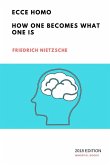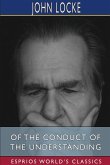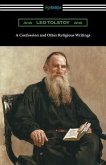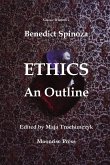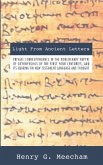This is a reprint of a 19th century translation of ""Ethica Ordine Geometrico Demonstrata"" by Benedict de Spinoza (Baruch Spinoza, 1632-1677) first published in 1677. The translation by William Hale White (1831-1913), first published in 1883, was prepared for publication by Dr. Maja Trochimczyk, as the first volume of Moonrise Press's Classic Wisdom Book Series. The book consists of five parts: I. Of God; II. Of The Nature and Origin of the Mind, III. Of The Origin and Nature of the Affects; IV. Of Human Bondage, or of the Strength of the Affects; And V. Of the Power of the Intellect, or Of Human Liberty. Born in a Jewish-Portuguese family in Amsterdam in 1621, at 23, Spinoza was expelled from the Jewish community and is buried in a Christian Nieuwe Kerk, The Hague (he died at 44, in 1677). He was neither Jewish nor Christian in his views, and, from today's perspective may be called one of the early Classics of Awakened Wisdom, aware of the intrinsic unity of the Universe with God, the Source of all.


